Dave Neuhoff says farewell after 45 years championing students, faculty, and the department
Prof. Neuhoff, an internationally recognized expert in information theory, source coding, and image processing, retired earlier this year.
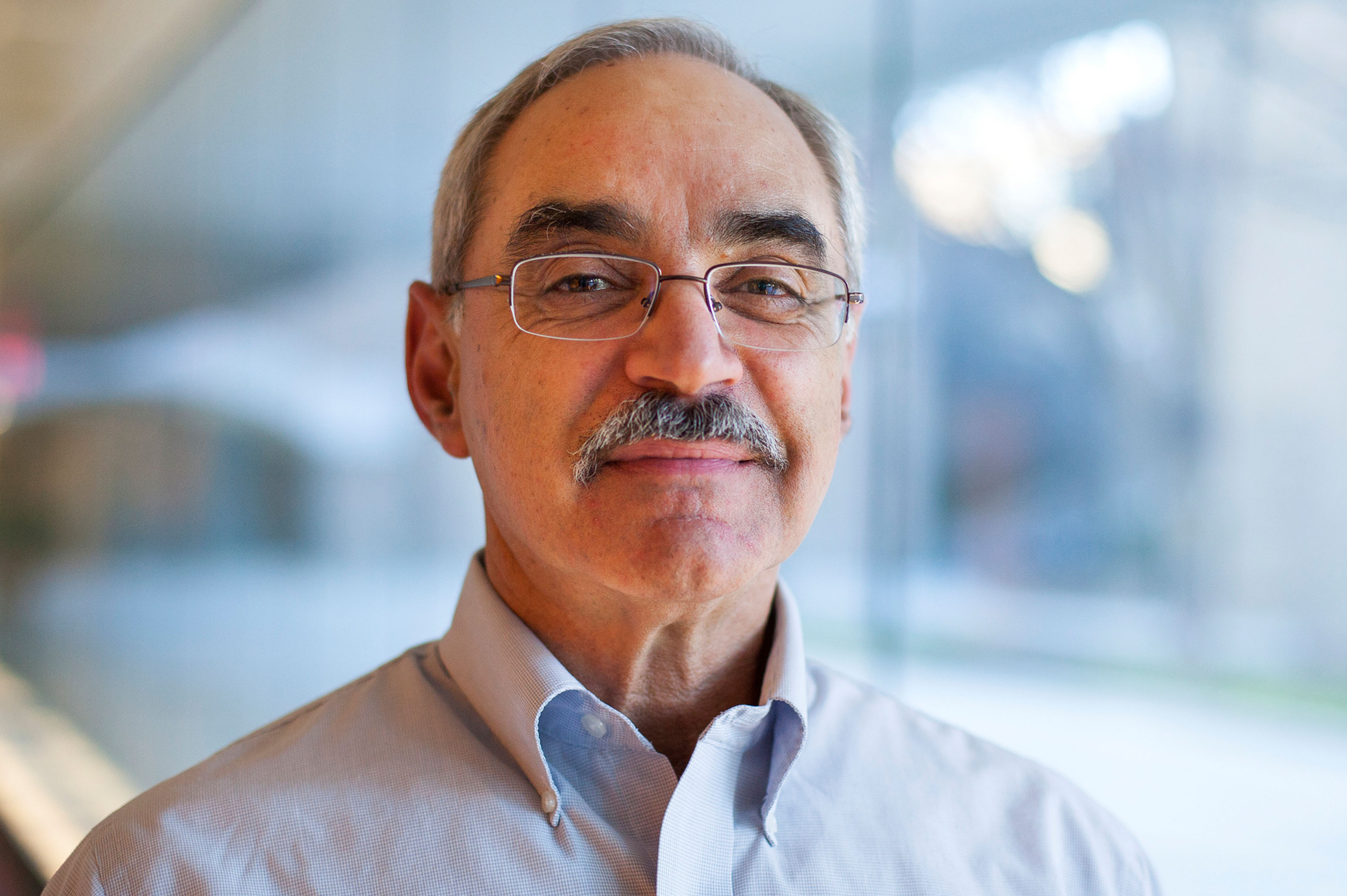
 Enlarge
Enlarge
Dave Neuhoff arrived at Michigan to begin his career as a professor of electrical engineering in 1974, the same year he received his doctoral degree from Stanford University. Nearly 45 years later, he leaves a legacy of research, teaching, leadership and service that brings honor to the department and university.
The 60s and early 70s on U-M’s campus were times of upheaval, protests, and tear gas, and was followed by nearly a decade of financial troubles. However, one of Neuhoff’s main struggles as a newly minted professor was finding his doctoral students; their offices were located at the end of an elaborate maze of hallways in the basement of the original engineering building on central campus. Another was his youthful appearance.
“Often I was mistaken for a student, so I decided to wear a tie,” he said.
Often I was mistaken for a student, so I decided to wear a tie.
Prof. Dave Neuhoff
Neuhoff, now the Joseph E. and Anne P. Rowe Professor Emeritus of Electrical Engineering, earned a reputation as an internationally recognized expert in information theory, source coding (also known as data compression), and image processing. He is particularly well known for his contributions to the development of universal source coding, causal source coding, high-resolution quantization theory and model-based halftoning.
Source coding is the process of encoding visual, audio, or other types of information using fewer bits than an un-encoded representation would use. His work has impacted image and video coding, and codes for audio compression.
In 1989, Prof. Neuhoff spent a sabbatical year in the Signal Processing Research Department at AT&T Bell Labs. His research on halftoning and facsimile transmission of images led to a number of key contributions in the fields of image compression and halftoning. He is recognized as one of the pioneers in the area of model-based halftoning, which impacted halftoning for laser printers.
Neuhoff has authored 217 publications and six patents. He received the College of Engineering (CoE) 1938E Award, the CoE Service Excellence Award, and the CoE Stephen S. Atwood Award, which is the college’s highest honor bestowed on faculty. He was named the Joseph E. and Anne P. Rowe Professor of Electrical Engineering in 2005, and is a Fellow of IEEE.
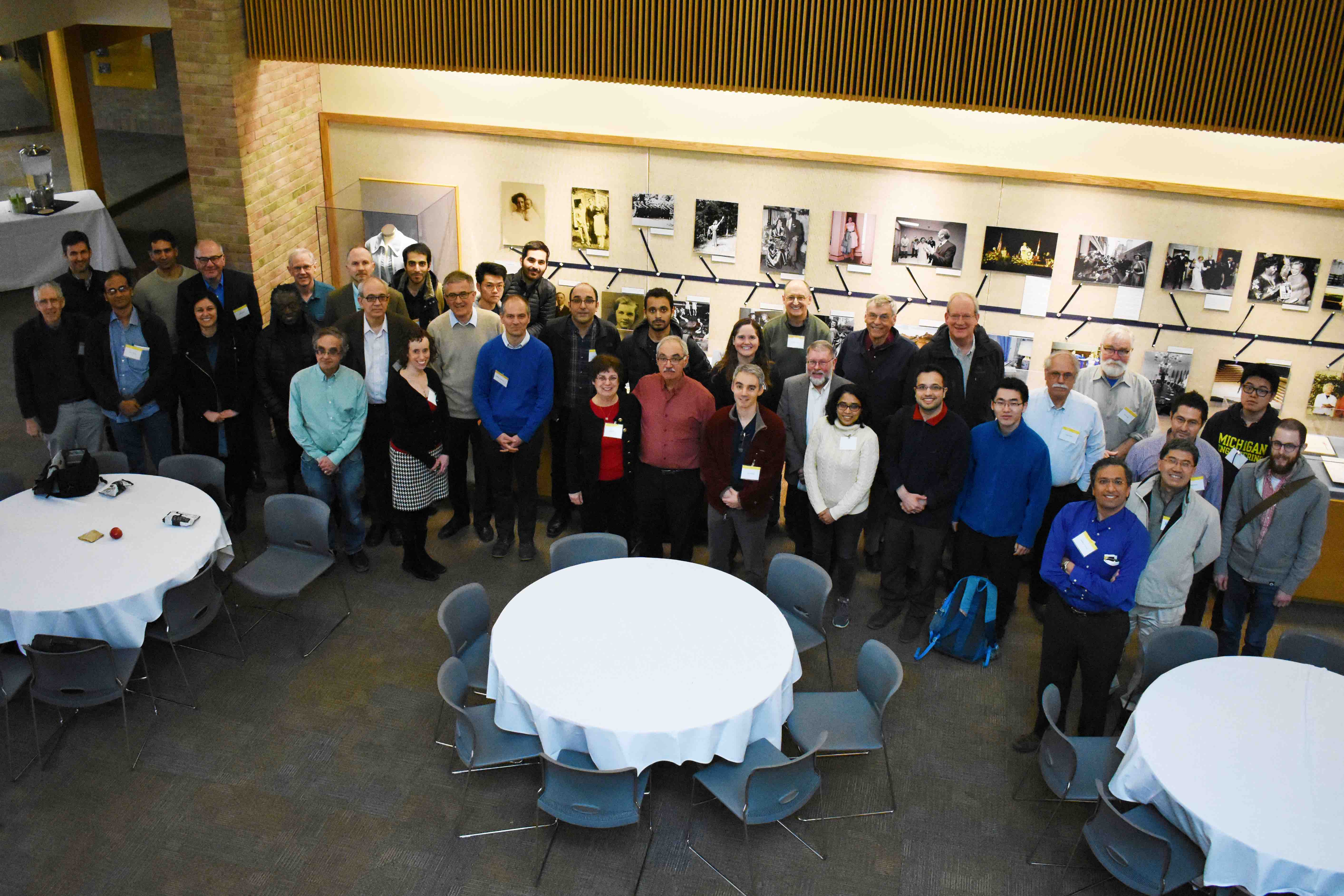
 Enlarge
Enlarge
Throughout his career, Neuhoff created five courses, including a core undergraduate course in signals and systems and graduate level courses in digital communications, coding, and data compression.
He was honored with a 2015 Rackham Distinguished Graduate Mentor Award for his sustained efforts as advisor, teacher, advocate, sponsor, and role model to doctoral students. He supervised 32 doctoral dissertations, and his students have gone on to become leaders in industry and academia, with seven holding tenure or tenure-track positions at major institutions of higher education.
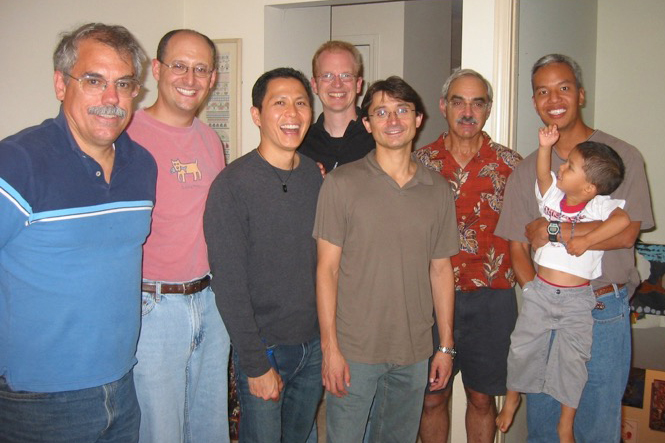
 Enlarge
Enlarge
Neuhoff’s students have praised him for his meticulous mentorship, which helped them to develop into creative and independent thinkers with a solid theoretical foundation. They also appreciated his patience, compassion, and kind support, especially in times of trouble.
“Dave has been one of the most positive influences in my life,” said Dr. Jordi Ribas, a former PhD student of Neuhoff’s who is currently a Corporate VP at Microsoft. “Early on during my doctoral studies, I didn’t get a department scholarship and felt insecure about my value and capabilities. Dave reminded me that I had my own strengths that others didn’t have, and encouraged me to keep working hard. In some difficult days, I still hear Dave telling me those words, which have given me confidence in myself throughout my career. I will forever be grateful to what he has taught me as an engineer and as a person.”
Dave has been one of the most positive influences in my life.
Dr. Jordi Ribas
His mentorship extended to younger faculty, including Mingyan Liu, who is now the Peter and Evelyn Fuss Chair of ECE. Liu’s first research project as a professor at U-M was a collaboration with Neuhoff. Liu credits Neuhoff with encouraging her to take some crucial early opportunities that helped her gain confidence and the respect of her peers.
“I can think of many examples of Dave’s kindness and mindfulness in nurturing and mentoring a younger generation of faculty,” Liu said.
Prof. Neuhoff brought the same meticulous approach that marked his research and doctoral mentorship to his service and leadership activities.
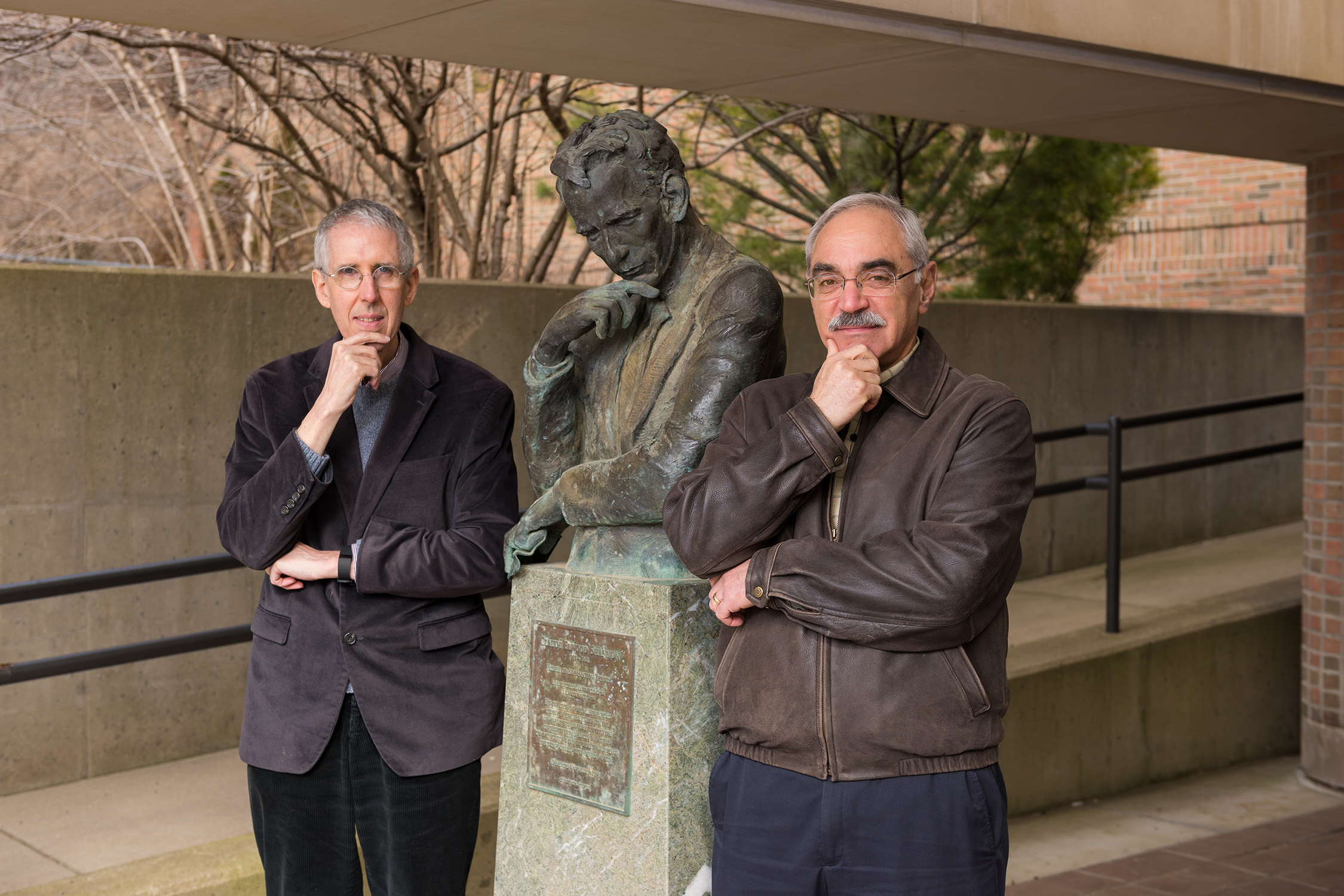
 Enlarge
Enlarge
He co-chaired the IEEE International Symposium on Information Theory in 1986, and served as president of the IEEE Information Theory Society in 2006. He received the IEEE Information Theory Society Service Award for his leadership in bringing statues of Claude Shannon (U-M alumnus and father of information theory) to a number of locations, including the University of Michigan. Neuhoff later helped organize the Shannon Centennial Symposium, held at the University of Michigan in 2016.
Prof. Neuhoff served as Associate Chair of the Department for eight years, and as Senior Associate Chair of ECE for another seven years. He also served as the Director of the former Communications and Signal Processing Laboratory for four years.
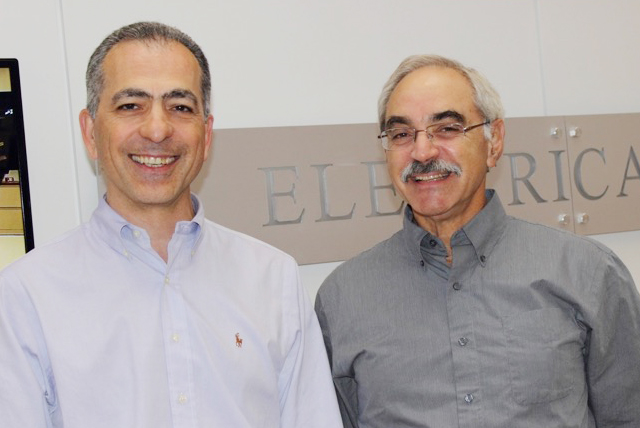
 Enlarge
Enlarge
He took on key leadership roles in graduate as well as undergraduate education throughout his career at Michigan. When the EECS Department was formed in 1984 by adding the Computer and Communication Sciences (CCS) Department in LSA and the Computer, Information, and Control Engineering (CICE) graduate program to the ECE Department, Prof. Neuhoff was instrumental in establishing its graduate programs, and in increasing its activities in communications, control, and signal processing.
More recently, as Chair of the Graduate Affairs Committee in ECE, he oversaw a dedicated effort to improve the academic experience of ECE graduate students. Perhaps the most important changes he shepherded were the department’s move to a fully-funded model for doctoral students and the establishment of an annual review process for graduate students; both were gladly embraced by the students.
“The hundreds and thousands of lives that he changed through the work that he did as an Associate Chair is so valuable,” said Steve McLaughlin, a former PhD student of Neuhoff’s who now serves as the Dean and Southern Company Chair of the College of Engineering at Georgia Tech. “I’m very, very grateful for all that he did for us students. Michigan is certainly a place where you’re taught to never be afraid to think big. At the end of the day, even though we are in the knowledge business, it’s really a people business. I learned that all from Dave.”
The hundreds and thousands of lives that [Dave] changed through the work that he did as an Associate Chair is so valuable.
Prof. Steve McLaughlin
At the master’s level, Prof. Neuhoff revamped and initiated programs for a combined undergraduate/master’s degree program to encourage Michigan students to get an advanced degree in an abbreviated period of time. Called the Sequential Undergraduate/Graduate Studies (SUGS) Program at Michigan, and the Joint Institute-SUGS Program for students enrolled at the U-M-Shanghai Jiao Tong University in China, these programs have benefited many students who otherwise may not have chosen to pursue an advanced degree.
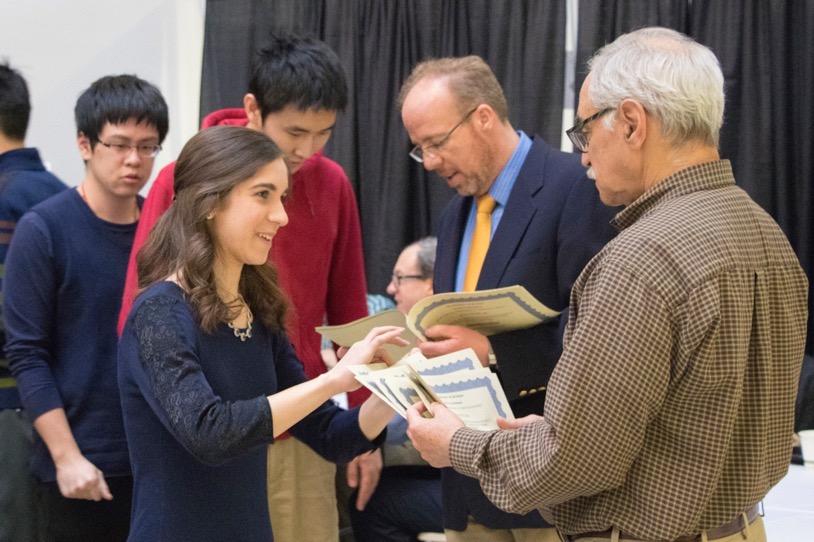
 Enlarge
Enlarge
At the undergraduate level, Prof. Neuhoff led the restructuring of the electrical engineering undergraduate program in the 1990’s, which served as a model for the restructuring of all College of Engineering undergraduate programs.
“I’ve always depended on the brilliance of students,” Neuhoff said. “I owe a tremendous amount to them. I’m grateful to hear them thank me, but it’s really me who should thank them.”
I'm grateful to hear [my students] thank me, but it’s really me who should thank them.
Prof. Dave Neuhoff
At a symposium honoring his retirement titled Information: Storage, Processing, Transmission and Learning, Prof. Neuhoff remarked, “I’m really thankful to have been part of such a great group of colleagues.”
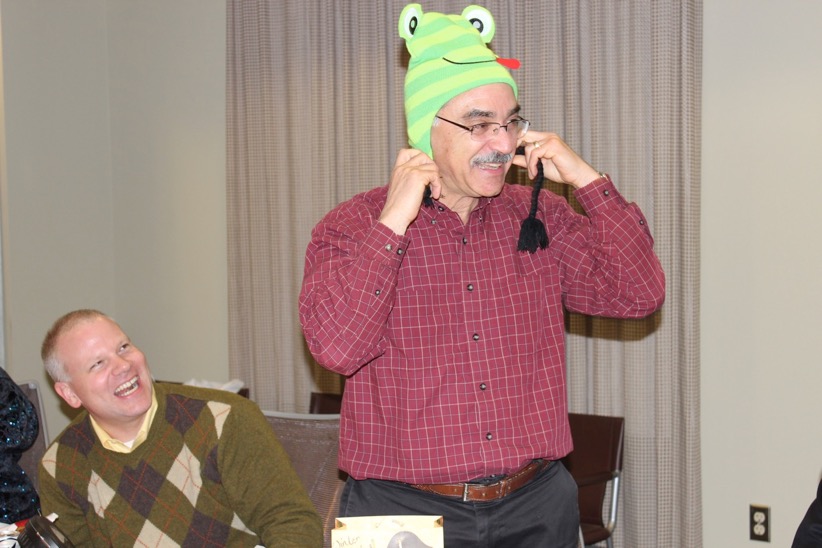
 Enlarge
Enlarge
 MENU
MENU 
